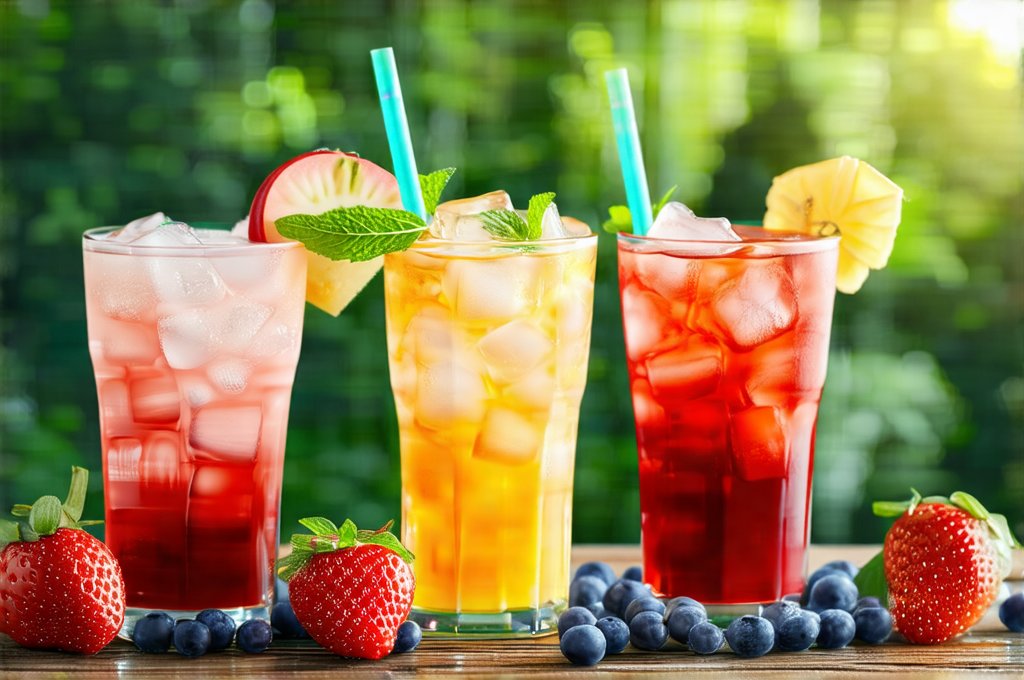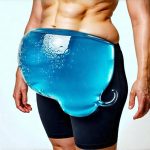Maintaining optimal hydration is fundamental to overall well-being, yet many people struggle to drink enough fluids daily. Often, the focus falls heavily on plain water, which while essential, isn’t always appealing or sufficient for sustained intake. Beyond simply quenching thirst, gut hydration—ensuring adequate fluid balance within the digestive system—is increasingly recognized as vital for optimal digestion, nutrient absorption, and even immune function. A healthy gut relies on proper hydration to support the microbiome and facilitate efficient waste removal. This article delves into a variety of non-carbonated beverage options that go beyond water to actively promote gut hydration, exploring both their hydrating properties and potential benefits for digestive health.
The challenge lies in finding beverages that are palatable, easy to incorporate into daily routines, and genuinely contribute to the body’s fluid needs while supporting gut function. Many commercially available drinks are loaded with sugar, artificial sweeteners, or other additives that can actually detrimentally impact gut health. Therefore, a focus on natural ingredients and mindful preparation is key. We’ll explore options ranging from herbal infusions and fruit-infused waters to fermented beverages and electrolyte-rich alternatives, providing practical ideas and considerations for building a hydrating beverage routine that supports a happy, healthy gut. You can learn more about the importance of dietary habits in maintaining this balance.
Hydrating Herbal Infusions & Teas
Herbal teas offer a fantastic alternative to water, often encouraging greater consumption due to their pleasant flavors and potential health benefits. Unlike caffeinated black or green teas (which can be dehydrating for some), many herbal infusions are naturally caffeine-free and boast properties that soothe the digestive system. Chamomile tea, for instance, is well-known for its calming effects and may help reduce bloating and discomfort. Peppermint tea can aid digestion by relaxing intestinal muscles, while ginger tea is often used to alleviate nausea and support gut motility.
The key to maximizing hydration with herbal teas lies in choosing organic options and avoiding added sugars or artificial flavorings. Brewing loose leaf herbs instead of using pre-packaged tea bags can also enhance the quality and potency of the infusion. Consider experimenting with different blends to find flavors you enjoy, such as a combination of chamomile, lavender, and lemon balm for a relaxing and gut-soothing beverage. It’s important to note that while generally safe, some herbs may interact with medications or have contraindications for certain health conditions, so consulting with a healthcare professional is always advisable. Understanding how to identify foods that suit your gut can also help you choose the right herbal infusions.
Beyond the commonly known options, explore lesser-known but equally beneficial herbal infusions like fennel seed tea (which can help reduce bloating) and dandelion root tea (a gentle diuretic that supports liver and kidney function, indirectly aiding gut health). A warm cup of herbal tea before or after meals can also promote mindful digestion, encouraging a slower pace of eating and improved nutrient absorption. Remember to sip your tea rather than gulping it down, further aiding the digestive process. You might find small choices like this make a big difference in how you feel.
Fruit & Vegetable Infused Waters
Infusing water with fruits and vegetables is an incredibly simple yet effective way to enhance its flavor and encourage increased fluid intake. This method not only makes water more appealing but also provides a subtle boost of vitamins and minerals. Common choices include cucumber and mint, lemon and ginger, or berries and basil. The possibilities are truly endless, allowing for creative combinations tailored to individual preferences.
The hydrating properties of infused water extend beyond the water itself. Many fruits and vegetables have high water content, contributing to overall fluid balance. For example, cucumbers are approximately 96% water, while watermelon is around 92%. These natural electrolytes also help replenish fluids lost through perspiration or digestion. Infusing water doesn’t significantly alter its electrolyte composition, but it makes hydration more enjoyable, leading to greater and consistent intake which is the primary benefit. You can even plan your infusions around easy-to-digest dinner ideas for a holistic approach.
To create infused water:
1. Choose your desired fruits and vegetables (organic whenever possible).
2. Slice them thinly or gently muddle herbs to release their flavors.
3. Add the ingredients to a pitcher of cold water.
4. Refrigerate for at least 30 minutes, allowing the flavors to infuse. For stronger flavor, allow it to sit overnight.
5. Enjoy! You can refill the pitcher several times before replacing the fruit/vegetables.
Fermented Beverage Options
Fermented beverages, like water kefir and kombucha (when consumed in moderation), offer a unique approach to gut hydration due to their probiotic content. Probiotics are beneficial bacteria that support a healthy gut microbiome, which is crucial for digestion, immunity, and overall health. Water kefir, made from sugar water fermented with kefir grains, provides a lightly effervescent and refreshing drink without the high sugar content of many sodas. Kombucha, fermented sweetened tea, also contains probiotics but typically has a more pronounced flavor profile.
The fermentation process itself enhances hydration by breaking down sugars into simpler compounds and creating naturally occurring electrolytes. However, it’s important to be mindful of the sugar content in kombucha, opting for low-sugar varieties or making your own at home where you can control the ingredients. Homemade fermented beverages allow greater control over the fermentation process and ensure a product free from artificial additives. Start with small amounts to assess tolerance, as some individuals may experience digestive upset when first introducing fermented foods into their diet. Building rituals around your consumption can make this more enjoyable.
Electrolyte-Rich Alternatives
Electrolytes – sodium, potassium, magnesium, and calcium – are essential for maintaining fluid balance and supporting proper cellular function. While plain water is vital, replenishing electrolytes, especially after exercise or during periods of dehydration, can significantly enhance hydration. Coconut water is a natural source of electrolytes, providing a refreshing and hydrating alternative to sugary sports drinks. It contains potassium, sodium, magnesium, and calcium in readily absorbable forms.
Another option is to create your own electrolyte drink using simple ingredients:
1. Water (8 ounces)
2. A pinch of Himalayan pink salt (provides sodium and trace minerals)
3. Juice from half a lemon or lime (for flavor and vitamin C)
4. One teaspoon of raw honey or maple syrup (optional, for slight sweetness – use sparingly)
5. A small splash of orange juice (adds potassium).
This homemade electrolyte drink offers a customizable and healthier alternative to commercially available options that often contain high levels of sugar and artificial ingredients. It’s particularly beneficial after strenuous activity or during periods of excessive sweating. Planning your day with a morning routine can help you stay on top of hydration.
Hydrating Smoothies & Purees
Smoothies, when thoughtfully prepared, can be excellent sources of hydration and gut-supporting nutrients. The key is to prioritize whole foods over sugary additives and focus on ingredients that promote digestion. Incorporating fruits with high water content (like watermelon or berries), leafy greens (for fiber and vitamins), and a healthy fat source (like avocado) creates a balanced and hydrating beverage. Blending in a small amount of unsweetened yogurt or kefir can also provide probiotics for gut health.
Pureed soups, especially those made with vegetables like cucumber, zucchini, or celery, offer another way to increase fluid intake while providing essential nutrients. Lightly seasoned and broth-based purees are easily digestible and can be soothing for the digestive system. Avoid creamy soups that rely heavily on dairy or excessive amounts of fat, as these can potentially slow down digestion. Focusing on vibrant colored vegetables is also a great way to ensure nutrient density. You may want to consider breakfast ideas that are gentle on the gut as well!
Remember that hydration isn’t just about drinking fluids; it’s about nourishing your body with foods and beverages that support overall health and well-being. By embracing these non-carbonated beverage ideas, you can create a hydrating routine that not only quenches your thirst but also promotes a happy, healthy gut – the foundation of optimal health.


















